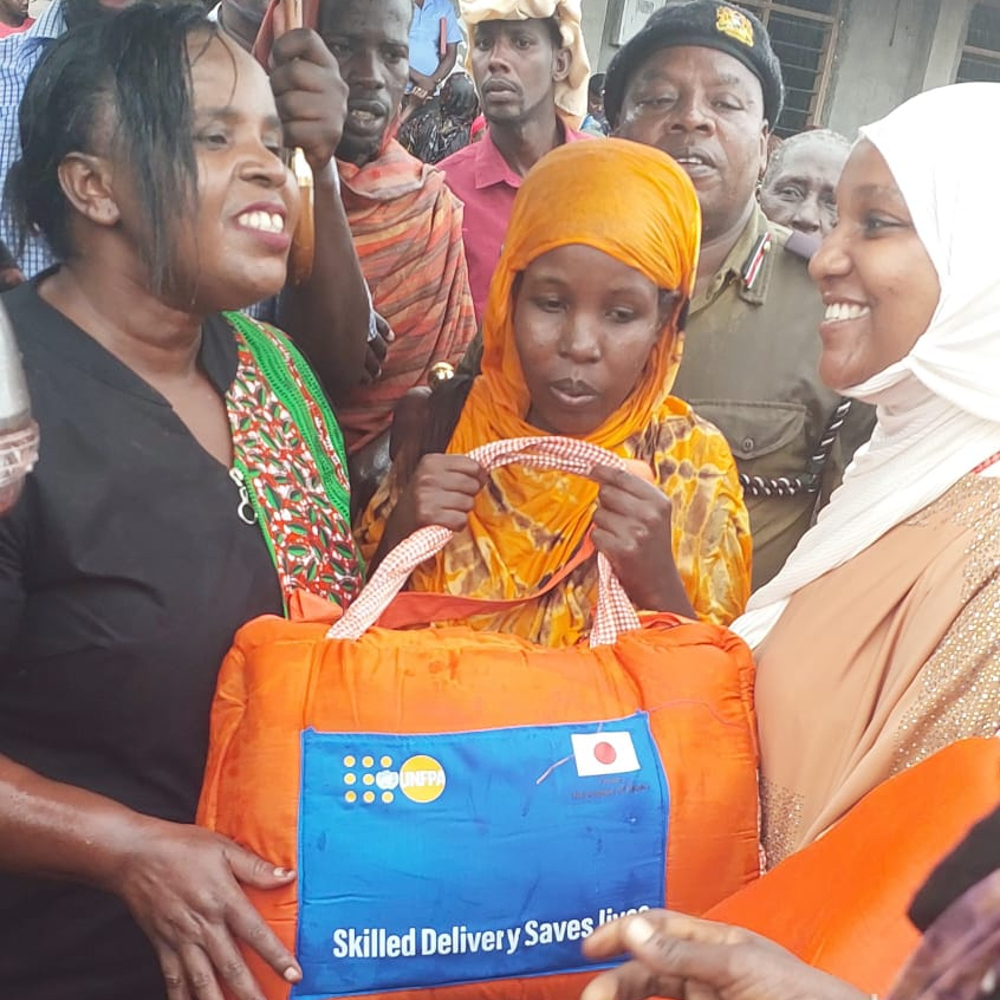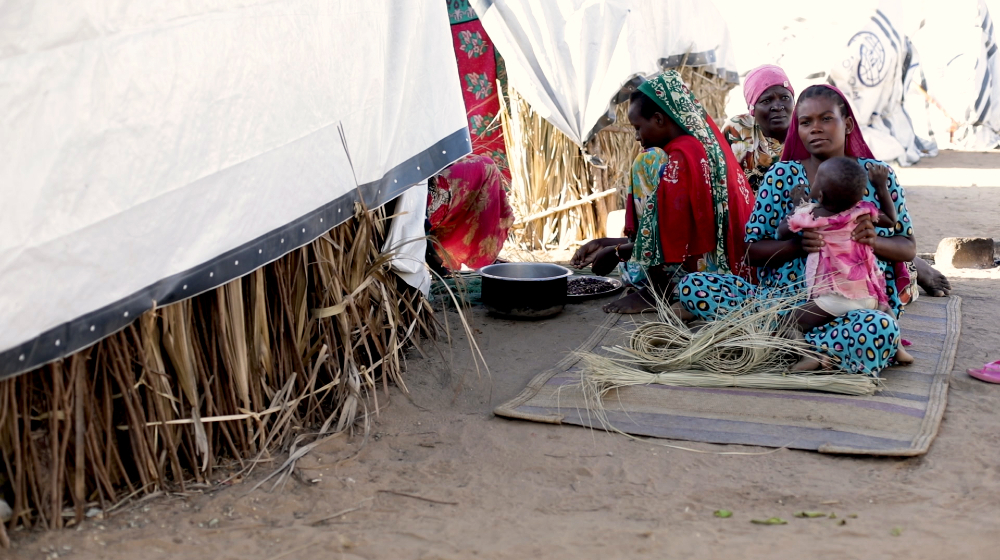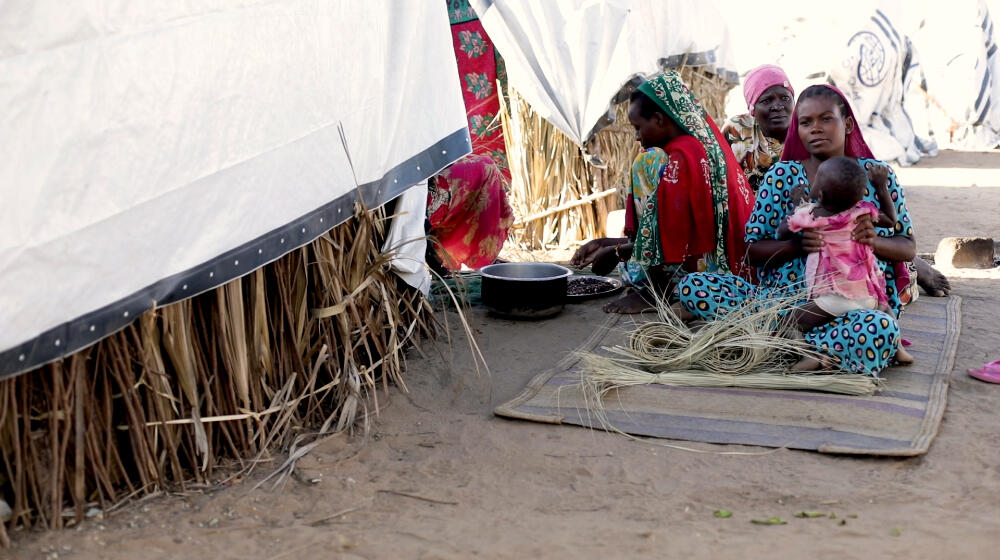Extreme weather events have continually exerted a heavy burden on households, the economy, and the social vibrancy of communities in Kenya. The country has experienced devastating droughts and floods in the last three years, leading to high fatalities, massive loss of property, disruption of livelihoods, and erosion of capacities to sustain the provision of essential services, including healthcare and protection.
Climate change-induced shocks disproportionately affect women and girls, particularly in vulnerable communities due to pre-existing inequalities and far-reaching impacts on the dichotomy of gender roles. Pregnant and postpartum women are subject to the occupational risks of exposure to temperature extremes when engaging in agriculture and other outdoor work- often necessary to avoid loss of income or food insecurity. Climate-related extreme weather events such as drought can jeopardize access to safe water essential for safe births and personal hygiene, and the mental health of women and girls. Climate change-related disasters can lead to population displacement and migration. Women and girls often face increased risks during these movements, including violence, exploitation, and lack of access to essential services.
To address the multifaceted impacts of climate change on health and protection needs, UNFPA in collaboration with stakeholders has designed and commenced the rollout of a resilience-building initiative in Turkana, Garissa, Tana River, and Mandera counties. The one-year project funded by the Government of Japan, the climate resilience project was officially launched on 28th May 2024 in Hola, Tana River County, and will be delivered in partnership with the Kenya RedCross Society, FilmAid Kenya, the International Rescue Committee, Peace Winds Japan- Kenya, and the Collaborative Centre for Gender and Development (CCGD) The project aims to mainstream resilience strategies into health and protection needs that are occasioned by climate change. The project targets to reach 826,413 people in the four counties listed above.

Cabinet Secretary Of The East African Community (EAC), The ASALs And Regional Development Cs. Peninah Malonza handing over mama kits in Tareesa, Tana River County.
The launch of the resilience project is a significant step towards creating an agile and empowered society in the face of climate change adversities. This initiative not only addresses immediate health and protection needs but also lays the foundation for a more sustainable and equitable future for communities in Kenya. The economic costs of climate change impacts are high, estimated to have amounted to between 3% and 5% of GDP per year over the past decade. Without appropriate climate change action, annual GDP costs could rise to between 6.5% and 8.5% between 2021 and 2050.
Kenya has a climate change policy in place as well as a national climate adaptation plan (NAP). The NAP recommends strengthening the integration of climate change adaptation into the health sector and strengthening the adaptive capacity of vulnerable groups (women, orphans, vulnerable children, the elderly, and persons with disability). One of the key attributes of the project launched by UNFPA is the emphasis on community empowerment and inclusivity. By working closely with local governments, the project aims to engage communities actively in building resilience and adapting to climate change challenges.

The County Government of Tana River applauded the partnership with UNFPA and other stakeholders, terming it the defining moment that will bolster their efforts to alleviate climate change-related barriers to improvement in maternal health indices. “Tana River County is beset by legion socio-economic challenges that are aggravated by harsh climatic conditions and brutal weather patterns. These continue to impede access to services and constrain efforts to eliminate harmful practices such as female genital mutilation that is rampant in the county,” says Hawa Abdul, the Tana River County GBV Coordinator.
UNFPA recognizes that investment in climate action is at the core of accelerating the achievement of three transformative results: ending preventable maternal deaths, ending the unmet need for family planning, and ending gender-based violence and harmful practices. “Population and human rights perspectives should be mainstreamed into climate action discourses to ensure the prioritization of healthcare and protection,” says John Wafula, the Humanitarian Programme Specialist at UNFPA Kenya.


